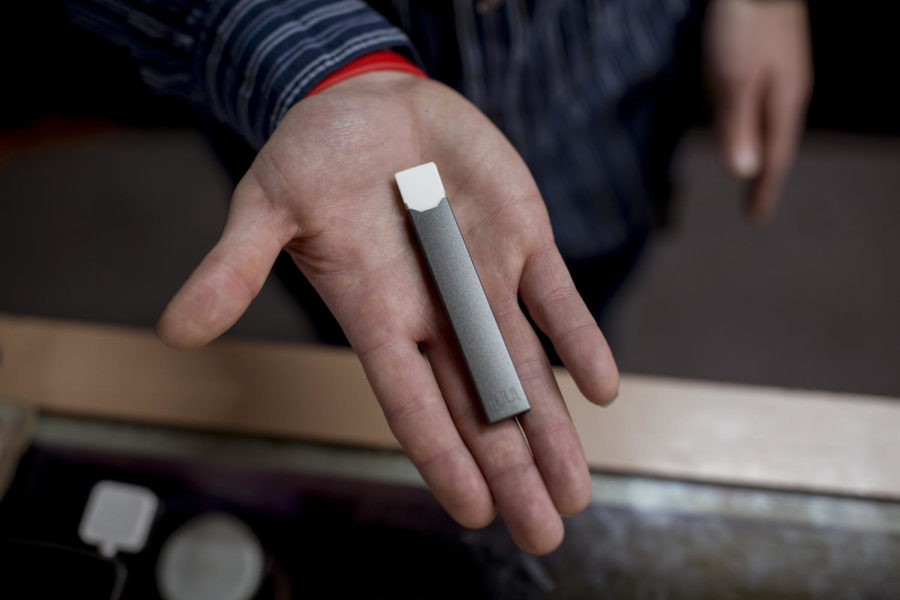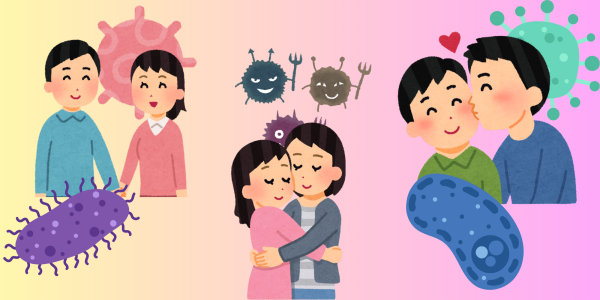Teen juuling: a national addiction crisis
An easily concealed device, the Juul has infiltrated the teen market and is popping up in schools across the nation. The product’s long-term health effects are not known, but its pervasiveness has worried parents and the FDA alike, both afraid of another nicotine-addicted generation.
It’s small, easily concealed, and the most popular product in the rapidly expanding e-cigarette market right now. But it doesn’t even look like a cigarette.
The Juul does not differ greatly from other e-cigarettes and vaping devices; however, it is the easiest to conceal. Resembling a flash drive, the device is made of a body, which holds the battery and temperature regulation system, and a pod, which holds the oil that is vaporized. When the user inhales, the liquid is heated up, and the nicotine salts deliver the rush to the head that many smokers crave from cigarettes.
In a 2017 National Youth Tobacco Survey, 11.7 percent of high schoolers were e-cigarette users, and that number has likely grown. The pervasiveness of the product is also corroborated by its sale numbers from the past few years, which show a 600 percent increase in sales and a 72 percent share of the e-cig market.
Despite the recent growth of the product and its rising number of adolescent users, a study by the University of Michigan Institute for Social Research shows that only 13.2 percent of teens know that the device contains nicotine.
Perhaps the ignorance on this topic can be attributed to teen culture, which makes juuling seem cool. When someone takes their first hit of a Juul, they are unconcerned with what they are putting in their body or the possible effects. Instead, they are thinking about how it enhances their social image. In reality, a Juul pod contains 59 milligrams of nicotine per milliliter of liquid, making it extremely easy to get addicted.
Because of its popularity among teens, the FDA has requested documents from the company pertaining to marketing strategy and has issued warnings to any retailers that sell the addictive device to minors in order to slow the spread of the product among youth.
In September, the FDA gave Juul and other e-cigarette manufacturers 60 days to generate ways to reduce the appeal to teen users. As a result, on Nov. 13, Juul announced it would be deleting its social media presence and halting the sale of the sweetly flavor vaping pods in order to address the issue.
The newness of the product and the market for e-cigarettes means that long-term health effects are not currently known. Regardless, the best prevention for health risks caused by the Juul and other e-cigarettes is to not get started.
More information:
The FDA Declares Teen Juuling an ‘Epidemic’
Juuling: The Addictive New Vaping Trend Teens Are Hiding
Your donation will support the student journalists of White Station High School. Your contribution will allow us to purchase equipment and cover our annual website hosting costs.








































